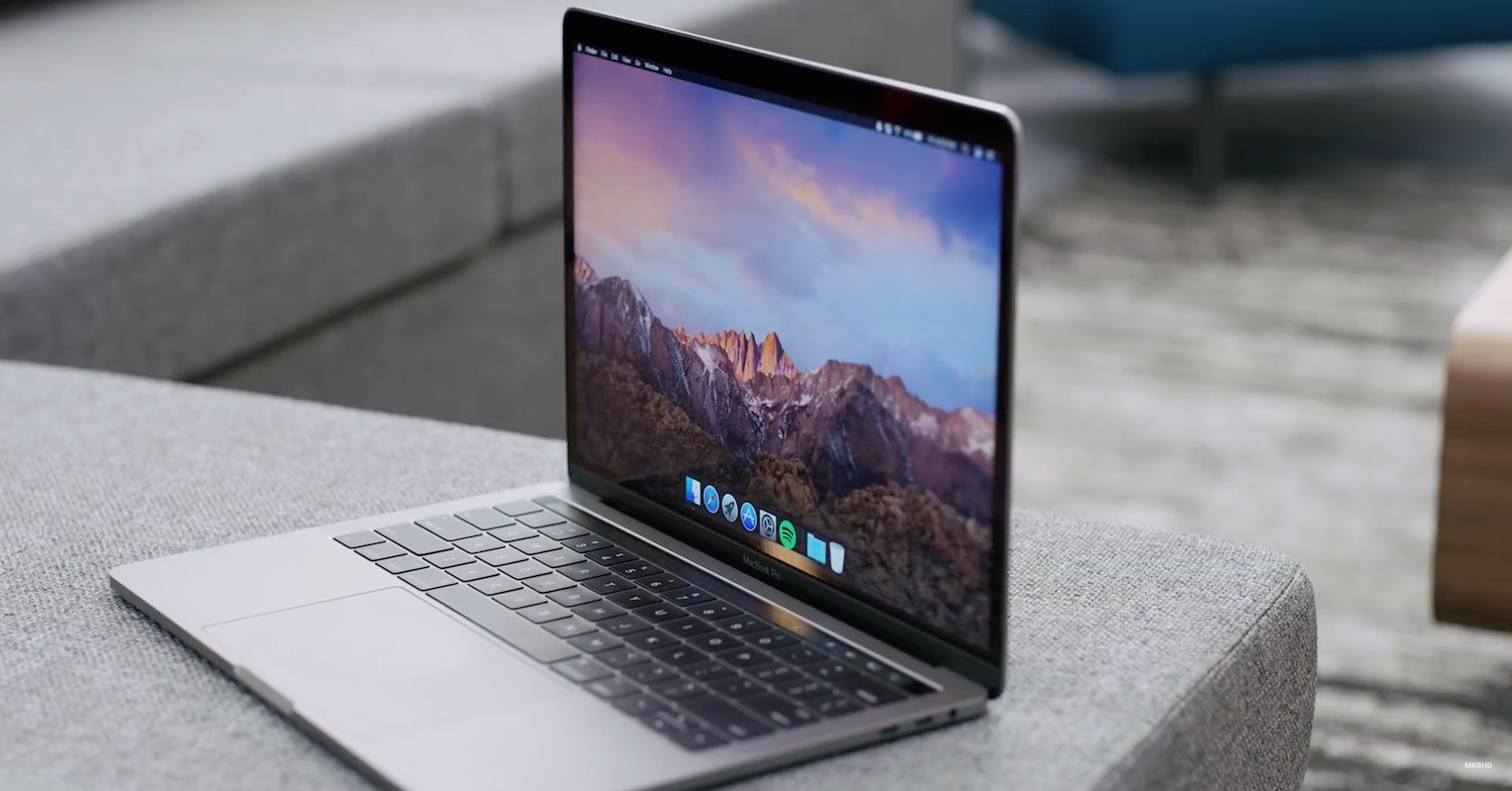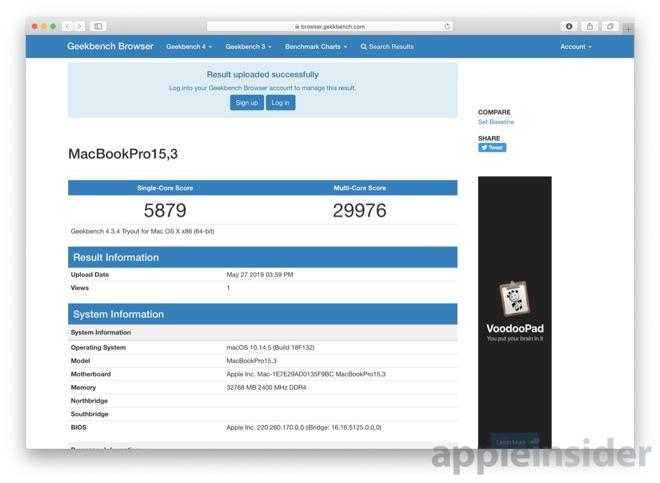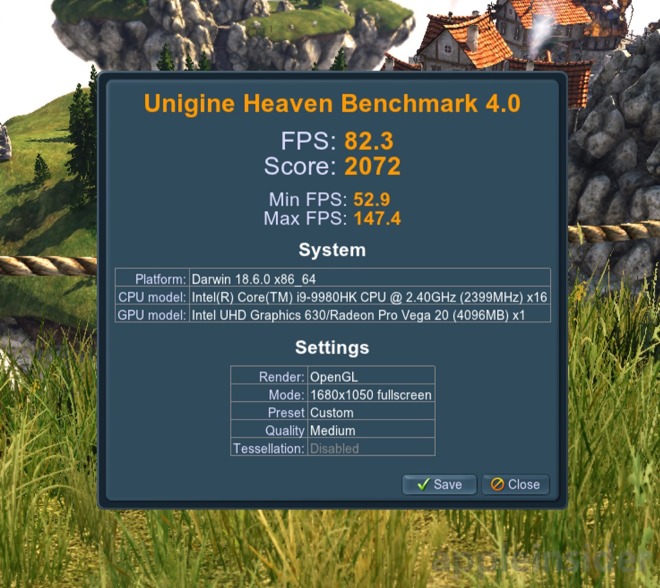We have already written enough about the new 15″ MacBook Pro. We looked at the new 8-core processor, how the cooling works with it and whether there is underclocking due to poor heat dissipation, and today we close the whole chapter with a look at the performance of the highest possible specification of the 15″ MacBook Pro.
It could be interest you

If you need a MacBook and the highest possible performance, the only option is to go for the 15″ variant with a top processor configuration (8-core Intel Core i9) and a dedicated AMD Radeon Vega 20 graphics card. Basically, this configuration costs just over 100 thousand crowns, but the resulting price can increase significantly by adding additional operating memory and expanding the internal SSD storage. However, for more than 100 crowns, you get performance that significantly exceeds all previous MacBooks.
In the Geekbench 4 benchmark, the new model reached 5 points in the single-threaded test and almost 879 points in the multi-threaded test. Compared to last year's top configuration, this is about a 30% increase in gross performance in terms of the multithreaded benchmark (last year's model reached the limit of 20 points). As for the popular CPU benchmark Cinebench R24, here the novelty reached a respectable 20 points. This result is the average of 3 separate tests (range 096 - 10). Last year's model reached 3-160 points in this benchmark. Again, roughly a 3% increase.

As for the combined performance of the processor and dedicated graphics card, it was measured by Unigine Heaven, which is more focused on evaluating the gaming performance of the machine. The new model battled through the test with an average value of 82,3 fps and a score of 2 points. Maximum fps peaked at 072 fps with medium quality settings and tessellation, stereo 147,4D display and AA disabled. Last year's configuration with an i3 processor and a Radeon Pro 9X was able to pass the test with an average value of 560 fps and a total number of points of 62,5. So here is a performance increase of 1%.

In terms of the speed of the internal SSD storage, not much has changed since the last time, in the case of a 1 TB drive, the speeds are around 2 MB/s for reading and 627 MB/s for writing. Lower capacity drives will be slightly slower.
Source: Appleinsider
yes performance, but what about the keyboard, still a problem